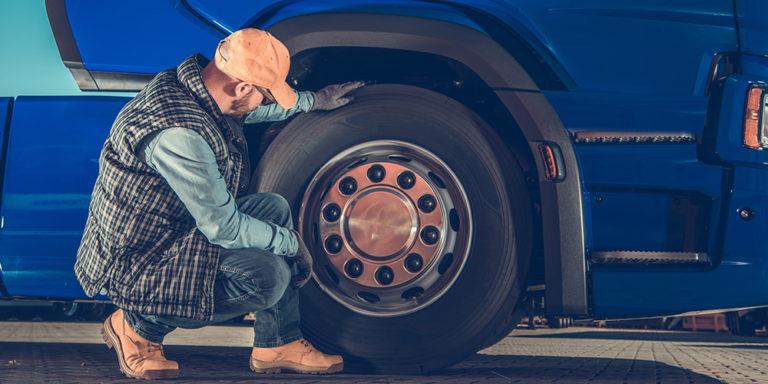Updated Truck and Bus Rule Compliance Certificates Available
February 21st, 2022
By Arrow Truck Marketing
Last Updated November 5, 2012
This summary describes how to obtain a certificate of reporting and how brokers, motor carriers, contractors, public agencies, developers, and others must verify the fleets they hire or dispatch are in compliance with the Truck and Bus regulation. The regulation does not apply to state and local government vehicles, most solid waste collection trucks, drayage trucks that transport marine cargo, and public transit buses because they are already subject to other regulations.
What are my responsibilities if I hire trucks as part of my business?
Anyone who operates or directs the operation of any vehicle subject to the Truck and Bus regulation needs to verify that each hired company is either in compliance with the regulation or has reported compliance to the Air Resources Board (ARB). This requirement applies to any in-state or out-of-state motor carrier, California broker, or any California resident including but not limited to contractors, public agencies, and developers. The requirement does not apply to receivers or other parties that do not hire,and do not direct the operation of any vehicle that is subject to the regulation.
How can I determine if the carrier that I hire has reported to ARB or is in compliance with the regulation?
Owners that report to the Air Resources Board to use flexible compliance options must report information about all of the heavier vehicles in their fleet that operate in California and can print a certificate that confirms they have reported to the ARB. Fleet owners that comply by using the engine model year schedule are not required to report but have the option to report company information and to print a certificate that states they are complying with the engine model year schedule. Either certificate can be used by a motor carrier, broker or other entity as evidence the hired fleet has reported compliance with the regulation. Motor carriers/brokers or other entities must obtain copies of the certificate or other proof of compliance annually. ARB also posts the names and motor carrier numbers of the fleets that have reported compliance at http://www.arb.ca.gov/msprog/onrdiesel/tblookup.php.
What can I do if the company I hire does not have a certificate?
If the fleet owner does not report to the ARB, then the owner must provide other documentation to demonstrate that their fleet complies with the engine model year schedules of the regulation. You should obtain a statement from the owner that verifies that they are aware of the Truck and Bus regulation (Title 13, California Code of Regulations, Section 2025) and are in compliance with the engine model year schedule. However, if you become aware that one or more vehicles in that fleet do not comply, then you cannot continue to use the services of the fleet.
Do I need to verify compliance if I hire for services that require specific trucks or buses?
Yes. If you hire a subcontractor for services of a truck, like dump trucks, concrete pumps , cranes, or charter buses, you are actively determining which companies and type of vehicle is needed to perform the service, and you will need to verify that the company you hire complies or has reported compliance to the ARB. For example, a contractor that directly hires a dump truck company to move debris from the roadside or hires a crane to lift a load, must verify compliance.
If I order materials from a supplier, do I need to verify compliance for the shipper?
No. If you are not actively involved in determining which transportation company will deliver the materials or products then you are not responsible for verifying that the fleet is in compliance. In other words, the receiver does not actively determine whose trucks will make the delivery. The shipper could use their own trucks or ultimately contract out the delivery to another motor carrier. Therefore, the receiver would not be responsible for verifying compliance.
Sometimes I work with other brokers to supplement a job, do I need to check compliance?
The contractual arrangement with a broker determines who is responsible for hiring each truck and verifying compliance with the regulation. The following are examples:
If you contract with a broker to get more trucks to a job, but you ultimately deal directly with the sub-haulers and pay them for their services, then you need to verify compliance.
If you have an arrangement with another broker where the other broker hires and pays the subhaulers when you need them, then the broker is responsible to verify compliance of the subhaulers that he hires, and you are not because you do not determine who he hires.
Do I need to verify compliance every time I hire a company that uses trucks?
No. If you hire a company to provide a service, other than transportation, and are not actively involved in determining what kind of trucks will be used, you are not responsible to verify compliance with the regulation. For example, if you order supplies and parts you are not actively involved in determining how your order is delivered nor in determining who ultimately delivers your order. Similarly, if you hire a contractor to do plumbing or electrical work, you are not actively involved in determining whether the contractor will use diesel trucks, and you are not involved in determining how the contractor arranges for equipment or supplies to be delivered to the job site.
Where can I find more information about the regulation?
Fact sheets, compliance tools and regulatory documents are available at www.arb.ca.gov/dieseltruck or by calling ARB’s diesel hotline at (866) 6DIESEL (634-3735).
While this document is intended to assist fleets with their compliance efforts, it is the sole responsibility of fleets to ensure compliance with the Truck and Bus Regulation.
Related Links:
About CSA – Compliance, Safety, Accountability HOS (Hours-Of-Service) Learn More About Trucking Business Issues

